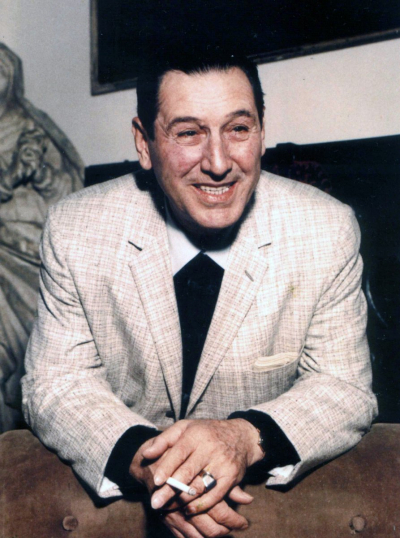The Argentine general election of 1946, the last for which only men were enfranchised, was held on 24 February. Voters chose both the President and their legislators.
Juan Domingo Perón (UK: , US: , Spanish: [ˈxwan doˈmiŋɡo peˈɾon]; 8 October 1895 – 1 July 1974) was an Argentine Army general and politician. After serving in several government positions, including Minister of Labour and Vice President of a military dictatorship, he was elected President of Argentina three times, serving from June 1946 to September 1955, when he was overthrown by the Revolución Libertadora, and then from October 1973 until his death in July 1974.
During his first presidential term (1946–52), Perón was supported by his second wife, Eva Duarte ("Evita"): they were immensely popular among the Argentine working class. Eva died in 1952, and Perón was elected to a second term, serving from 1952 until 1955. During the following period of two military dictatorships, interrupted by two civilian governments, the Peronist party was outlawed and Perón was exiled. When the Peronist Héctor José Cámpora was elected President in 1973, Perón returned to Argentina and was soon after elected President for a third time (12 October 1973 – 1 July 1974). His third wife, María Estela Martínez, known as Isabel Perón, was elected as Vice President on his ticket and succeeded him as President upon his death in 1974.
Although they are still controversial figures, Juan and Eva Perón are nonetheless considered icons by the Peronists. The Peróns' followers praised their efforts to eliminate poverty and to dignify labour, while their detractors considered them demagogues and dictators. The Peróns gave their name to the political movement known as Peronism, which in present-day Argentina is represented mainly by the Justicialist Party.

1946Feb, 24
Colonel Juan Perón, founder of the political movement that became known as Peronism, is elected to his first term as President of Argentina.
Choose Another Date
Events on 1946
- 11Mar
Auschwitz concentration camp
Rudolf Höss, the first commandant of Auschwitz concentration camp, is captured by British troops. - 2Sep
Jawaharlal Nehru
The Interim Government of India is formed, headed by Jawaharlal Nehru as Vice President with the powers of a Prime Minister. - 8Sep
Bulgaria
A 95.6% vote in favor of abolishing the monarchy in Bulgaria. - 23Oct
Flushing, Queens
The United Nations General Assembly convenes for the first time, at an auditorium in Flushing, Queens, New York City. - 19Nov
Iceland
Afghanistan, Iceland and Sweden join the United Nations.

 English
English  español
español  français
français  português
português  русский
русский  العربية
العربية  简体中文
简体中文 